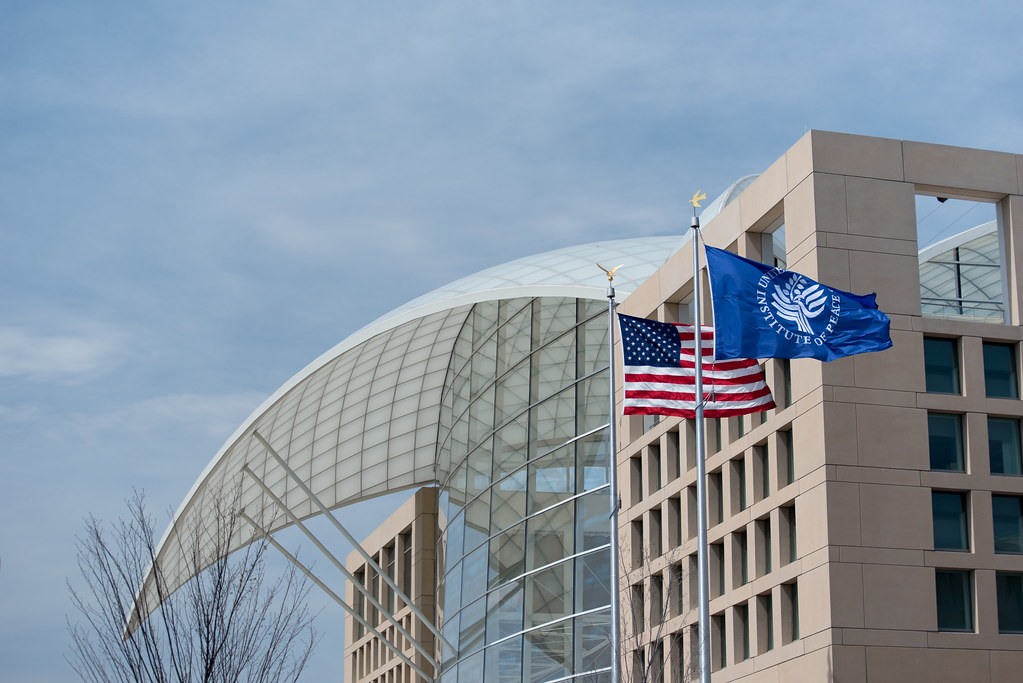
In a significant move by the Trump administration, employees of the United States Institute of Peace (USIP) received termination letters on Friday evening, marking the continuation of efforts to reimagine the role of the US abroad. This action is part of a broader initiative by the Department of Government Efficiency (DOGE) to dismantle key sections of the federal government.
According to sources within the organization, the vast majority of USIP’s staff members were given notices of termination, effective as of March 28. The notification outlined that health care benefits would end on March 31, and employees would be compensated for work performed through Friday and for any remaining vacation days.
The USIP, which was founded during the Reagan administration, has long been known for its efforts in international peace and conflict resolution. The non-profit promotes research, education, and training aimed at resolving violent conflicts and promoting post-conflict stability, according to the official description on USA.gov. The organization’s official website has since been taken down following the firings.
Executive Order Targeting USIP
In February, President Trump signed an executive order targeting the US Institute of Peace. The order stated that the move was part of efforts to “dramatically reduce the size of the Federal Government, while increasing its accountability to the American people.” George Foote, former counsel to the USIP, has now filed litigation, arguing that the efforts to dismiss top officials at the institute are illegal.
The lawsuit was filed in the DC District Court after DOGE personnel, accompanied by DC police, gained access to the USIP building earlier this month, despite initially being turned away. Foote has indicated that all papers related to the case will be filed by April 25, and a judge will either decide the case or schedule a hearing in late April.
While the mass firings were not entirely unexpected, sources inside USIP expressed disappointment over the decision. One anonymous employee noted that the contradiction was glaring, especially considering President Trump’s professed goal of being a “peacemaker.” “It’s obviously disappointing,” said the source. “Every olive branch was extended to the president and his representatives. We wanted to work with this administration, as we did with seven prior administrations.”
President Trump, who has repeatedly expressed his desire to be remembered as a peacemaker, has referred to peace-building as a significant aspect of his legacy. However, critics argue that the termination of the USIP’s staff undermines these claims.
The Financial and Operational Impact
Unlike agencies such as the US Agency for International Development (USAID), USIP is an independent non-profit organization with its funding allocated by Congress, amounting to $55 million annually. Between 50 to 75 employees were working overseas at the time of the firings, per Foote’s statements. Additionally, the institute holds a nearly $80 million endowment, the future of which remains uncertain.
While White House spokesperson Anna Kelly defended the decision, claiming that taxpayers shouldn’t be spending $50 million a year on a “research institute” that has “failed to deliver peace,” Foote pointed to the institute’s critical work in advising the National Security Council and its peace-building efforts in regions such as Papua New Guinea and Cambodia.
Foote reflected on the work of USIP staff, noting that it was not just “faceless bureaucrats” but people who had made tangible contributions to global peace and security. The institute’s legacy includes efforts to prevent military intervention by the US in conflict zones, thus protecting American interests abroad.
“There are carved doves in the foyer of the USIP headquarters, each bearing the name of a staff member who died in a conflict zone,” Foote shared. “These are not just government workers; they are people who have put their lives on the line for global peace.”
What The Author Thinks
The mass firings of the USIP staff represent more than just a political maneuver—they reflect a grave misstep in the country’s foreign policy. The institute’s work, particularly in conflict zones, has provided the US with a unique ability to mediate and prevent wars before they escalate. By dismantling such an organization, the Trump administration not only undermines efforts toward global peace but also creates a dangerous vacuum that could lead to increased instability. A government that undermines its own peace-building institutions is not one that prioritizes diplomacy or the long-term welfare of the American people.
Featured image credit: Robert Lyle Bolton via Flickr
Follow us for more breaking news on DMR
